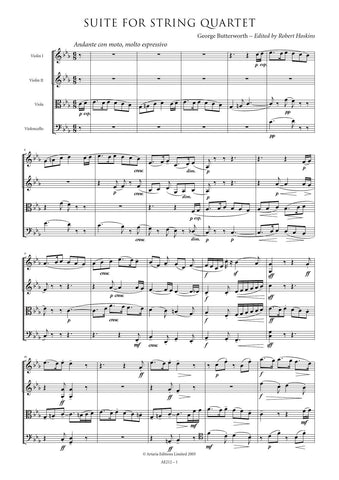Butterworth, George (1885 - 1916)
George Butterworth (1885-1916) was a central figure in pre Great War English music. He studied at Oxford with Hugh Allen and with Charles Wood at the Royal College of Music; Wood was composing his A minor string quartet at the time of supervision.
Cecil Sharp and Ralph Vaughan Williams ignited Butterworth’s interest in the folksong revival movement and he became an active collector. In their own music Butterworth and Vaughan Williams sought to engage with the long-term process of symphonic music and with the collective spirit of folksong; these ideals are partly realised in Butterworth’s integrated song-cycle settings of Housman and Henley, and in such orchestral works as Two English Idylls (1911), A Shropshire Lad (1912) and The Banks of Green Willow (1913).
Butterworth distinguished himself as a soldier (he was awarded the Military Cross posthumously); he was killed in the Battle of Somme.




